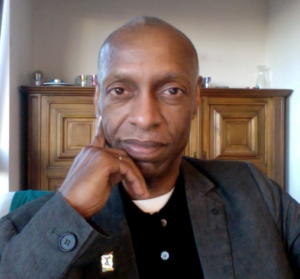 Joe Washington, GVI’s President, recently retired after serving 10+ years with the United Nations peacekeeping mission in Sudan/South Sudan. How he came to be in Sudan, and later South Sudan, is quite a story.
Joe Washington, GVI’s President, recently retired after serving 10+ years with the United Nations peacekeeping mission in Sudan/South Sudan. How he came to be in Sudan, and later South Sudan, is quite a story.
Growing up in the southside of Chicago, Joe had an innate desire to work internationally to help make the world a better place. He reminisces about being a young child and watching the 6 p.m. news with his parents where he viewed a story on a holy war in the middle east. He recalls being moved so profoundly that it led him on a quest to help parties in conflict.
As a young African American man, watching Jesse Jackson run for president was wildly inspiring to Joe. He felt now more than ever that he could achieve his dreams of helping those in crisis, but he was reluctant to be limited by US international policy. How does one become an independent diplomat? he wondered.Ultimately, after studying conflict resolution, negotiation mediation training and human rights, Joe served for more than two decades as an academic for various institutions in the United States and Europe. It was in Italy where he was persuaded to begin his career with the UN. His time in Sudan and South Sudan spanned the countries’ historic separation into two nations, and the subsequent violence that engulfed South Sudan in the years after independence.
Joe arrived in Khartoum, Sudan in 2006, where he lived in a pleasant apartment with convenient amenities. In 2007, he was transferred to Juba, South Sudan where he lived in a shipping container with one bed, table, chair, wardrobe, and mini fridge. He brought his own mosquito nets. Joe was lucky, his colleagues told him, as they had just moved into the shipping containers after living in tents. Joe routinely reminded colleagues and new arrivals during the induction briefings that if life in the country was easy, they wouldn’t be needed.
Joe explains that a growing worldwide trend in the aftermath of various attacks on UN compounds over the years is for theUN to isolate itself for security reasons, often away from highly populated areas where large segments of the population exist. This has consequences in terms of outreach. The physical disconnect is a key factor in the community wondering what exactly the UN is doing in their nation. There is a general tendency, Joe explains, of locals feeling that, “[the UN employees] have all of these things that we do not have, yet they say they are here to serve us.” Many UN employees are typically only seen when they are at markets buying goods that most of the local population cannot afford to buy. Joe wonders if this is the best way to build bridges with them. He is confident that there are innovative ways to build common ground.
The peacekeeping mission in South Sudan costs the UN member states approximately $1 billion USD annually. If lives are saved due to the UN’s presence, then Joe believes that the funding is absolutely worth it. However, the question of course becomes: do you need to spend $1 billion to save lives? Or do you just need the military in environments where there is no peace to keep? Must it always be a holistic and integrated approach? Unfortunately there’s no easy answer.
Joe’s view is that everyone has a role to play and that everyone can make a difference; at a minimum, all UN employees should be aware of what the others are doing, even if they are not sitting down together.
Since retiring from the United Nations, Joe has had the opportunity to work with the Global Vision Institute (GVI), an organisation that first began as “a therapy group for idealists.” The group was founded on the notion that there were UN staff who were disenchanted to the degree to which the UN wasn’t living up to its core values. Today, GVI is a network, catalyst and think-tank for creating a universal values-driven international system. Joe believes that “it’s a very important new chapter in terms of values training and awareness that we are embarking on” which he thinks is the “key to make motivated people succeed.”
One of Joe’s favourite songs is Michael Jackson’s Man in the Mirror. It is “basically talking about being a reflective practitioner – I think that’s something that we don’t do enough of,” he explained. Reflecting on his time with the UN, many of his ideals were confirmed such as the power of listening. “So many people out there want to make a difference and want to make a change; be open and you will find them and together you will find a way forward.” Indeed, even slow progress is still progress.
Joe’s final piece of advice to those struggling in an environment where bureaucracy and politics are barriers?
“Be patient and committed and never give up.”
You can listen to Joe’s full podcast “Joe Washington: Reflections on 10 Years in South Sudan with the United Nations” here.